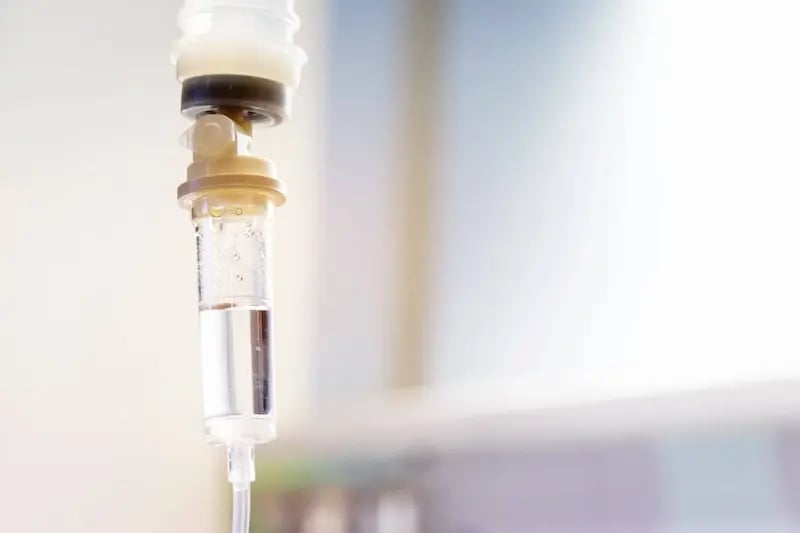Evolving from Data and Insight to Interventions and Impact
Challenges & Risks
Infusion-related medication errors contribute to 54% of all adverse drug events and 61% of serious or life-threatening errors1,2. The average error costs over $8,750 per event driven by elongated length of stay, unreimbursed utilization, and legal costs3.
Hospitals are at risk for adverse patient outcomes, regulatory and legal exposure, and compromised CMS 5-Star quality ratings.
What We Do
Med O.S.® for Infusion Safety combines hospital-specific data and national network practice data to uncover and surface up actionable interventions. Med O.S.® streamlines the labor-intensive process of analyzing data, instead providing clinician teams with actionable interventions substantiated by the literature and national network.
Intelligence
Supplements existing infusion data reports by streamlining the data analysis process and surfacing up actionable clinical interventions.
Impact
Inventories and tracks all interventions and monitors results longitudinally to measure the safety and economic value of quality improvement activity.
Clinical Services Desk
Our Clinical Service Desk provides access to our pharmacy team who partners with you to ensure interventions actually get implemented and ad hoc needs are supported.
Why It Matters
Growing regulatory requirements and industry standards are necessitating health system pharmacy and safety teams to dedicate more clinical resources to optimizing the use of their infusion data.
Institute for Safe Medication Practices
96% of clinicians agreed that infusion data is critical to quality improvement, however, 80% reported not having the time, tools, or resources to use this data to its full potential.
The Joint Commission
Sentinel Event Alert #63 and National Safety Goal 06.01.01 emphasize the importance of leveraging infusion data to prevent harm and improve alert salience.

CMS 5-Star Quality Ratings System
According to the Agency for Healthcare Research & Quality (AHRQ) infusions are associated with 63% of medication errors and 61% of serious and life-threatening errors.

American Society of Health-System Pharmacists (ASHP)
ASHP’s Standardize for Safety initiative highlights the importance of infusion data and national drug standards to improve safety, simplify pharmacy operations and reduce medication waste.
The Source of Truth for Injectable Medications
Infusion data is the source-of-truth for how injectable medications are actually administered to patients. If properly leveraged, this data can inform important interventions to improve safety, lower costs, and drive pharmacist and nurse efficiency.
Medication & Patient Safety
Pharmacist & Nurse Efficiency
Regulatory Compliance
Pharmacy Operations
How We’re Different
Traditionally, hospital pharmacy and nursing teams have leveraged their own data and native reporting tools to identify improvements. Med O.S.® for Infusion Safety was initially developed within a hospital system with a goal of supplementing analytics tools in order to get clinicians as close as possible to actionable interventions. Med O.S.® was built on the premise that clinicians need answers and interventions, not just KPIs and data.
Clinician Productivity
Infusion data requires labor-intensive clinical evaluation to be transformed into actionable interventions.
In our experience and survey data, over 80% of clinical time is spent on analyzing data, and less than 20% is spent on clinically adjudicating and actually implementing interventions.
National Networking
Hospitals have adept pharmacy and nursing teams; however, they have limited ability to benchmark and learn from other institutions, which is critical to adopting best practices already discovered by other institutions.
Analysis Scope
Compliance and alert management are crucial use cases; however, it's important to broaden the scope of analysis to look more holistically into infusion practice data to drive value.
Impact & ROI
For almost 10 years, we've worked with hundreds of hospitals to deliver data-driven solutions with measurable improvements in safety, efficiency, and cost savings.

Bainbridge Health Helps a Five-Hospital System Reduce Clinically Irrelevant Alerts by 70%

Optimizing Clinical Resource Allocation: Creating Efficiency Through Streamlining Infusion Data Analysis

Building a Safer Infusion Culture: Increasing DERS Compliance From 34% to 90% Through Targeted Action
Reduce Medication Errors & Ensure Patient Safety
- Hoffman L, Bacon O. Infusion Pumps. In: Hall KK, Shoemaker-Hunt S, Hoffman L, et al. Making Healthcare Safer III: A Critical Analysis of Existing and Emerging Patient Safety Practices [Internet]. Rockville (MD): Agency for Healthcare Research and Quality (US); 2020 Mar. 12. Available from: https://www.ncbi.nlm.nih.gov/books/NBK555506/
- Giuliano KK. IV smart pumps: The impact of a simplified user interface on clinical use. Biomed Instrum Technol. 2015;Suppl:13–21. doi: 10.2345/0899-8205-49.s4.13.
- Institute of Medicine. Preventing medication errors. Washington, DC: The National Academies Press; 2007.